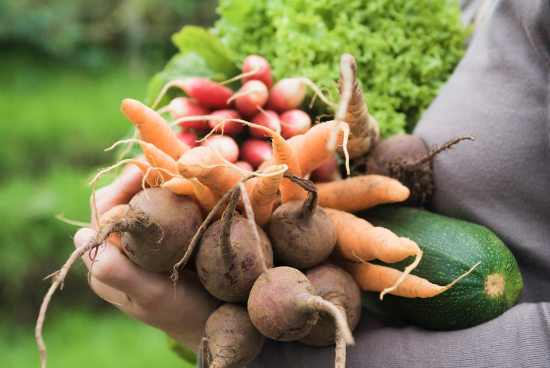The colder weather months can affect your senior living lifestyle in other ways aside from paying more on your monthly heating bill and deciding on what to wear every single day. Your body reacts to the progressive drop in temperature, which can lower your immune system. Because of that, your body is open to the many illnesses that are present during this time of the year. Illnesses like the flu and the common cold are just to name a few. As seniors, you’re at risk if you don’t take care of yourself during this season.
Aside for bundling up more often, seniors like yourself need to focus on what kinds of foods you eat daily. Having a proper diet that is appropriate for colder months can lead to a more pleasant time of the year without the risks of sicknesses and other problems.
Senior Living Lifestyle and Colder Weather

Seniors like yourself are known to lose body heat faster than when they were younger. This is due to how one’s own body changes over the years. Because of this, seniors like yourself need to practice cold weather safety to protect one’s own body. Neglecting these practices could result in sudden illnesses and even fatality.
What Happens to Your Body During the Colder Weather?

To understand why you need to adjust your senior living lifestyle during the winter months, you need to know what your body is capable of. While your body can experience frostbite and hypothermia in extreme cases, you should focus on the common occurrences that seniors like yourself can likely experience.
Muscular and Joint Problems.
During the colder times, one’s own blood vessels will constrict and reduce blood flow to the muscles, causing aches and pains. Additionally, the fluid around your joints will thicken causing cases of discomfort in those who suffer from arthritis. You might not even have arthritis and might feel the aches and pains.
Blood Flow Prioritizes Internal Organs, Neglecting Other Parts
With the colder environment, your body’s blood vessels will work harder to keep your internal organs flowing with warm blood. Because of this, it will move blood away from other important areas of your body, like your skin and extremities. Wearing warmer clothing like gloves will help in proper blood circulation.
Increased Chance of Contracting Illnesses.
While it has been proven that staying outside in colder temperatures won’t give you a virus automatically, it should be noted that the colds and flu viruses are more present in these temperatures. Colder weather makes it easier for viruses to sneak in because of weaker body temperatures and immune systems. Also since this time of the year is more social and indoor activity oriented, you’re likely to interact with people who have such sicknesses.
Certain Foods You Should Eat and Avoid During the Winter

To avoid the previously mentioned bodily problems seniors can experience, adjusting one’s own diet during the colder months can help overall. Certain foods contain vitamins and antioxidants that boost the body and lower the chances of winter sicknesses. If you live in a senior living lifestyle community (like an independent or assisted living residence), ask if the meal provider has these certain foods and see if they can add them to your meal plan (if you have one).
Root Vegetables
Root Vegetables like carrots, parsnips, turnips, and sugar beets are rich in fiber. Since they are grown underground, they absorb a lot of the minerals from the soil, producing vitamins A and C. These vitamins can help blood vessels flow better, produce stronger bones, and ward off certain winter illnesses.
Oatmeal
Oatmeal contains a high amount of zinc, which can help in proper immune system functioning thus preventing winter-related illnesses from occurring in the body. It also contains essentials that help in digestive function and heart health like soluble fiber.
Fish and Foods Rich in Vitamin D
Fish like Tuna and Salmon contain a lot of Vitamin D, which helps with your body’s biggest organ, the skin. During the winter months, your skin is usually concealed from the elements, harsh ones like cold wind and snow, but also essential ones like the sun. Vitamin D deficiency can lead to slow cell growth, weaker bones, and increased risk of heart diseases.
Vegetables and Fruits Rich in Vitamin C
Certain vegetables and fruits benefit seniors like yourself during the winter months than other parts of the year. For vegetables, both broccoli and cauliflower contain high amounts of Vitamin C. The same can be said for citrus fruits like oranges and grapefruits serve the same purpose. Getting the proper amount of Vitamin C help fight off colds and flu viruses and almost help in overall bodily health.
Essential Spicy Foods
Since it’s cold outside, perhaps it’s time to turn up the heat. If your senior living lifestyle allows for you to consume certain spicy foods, go for it. Spicy food staples like ginger and jalapenos have helpful vitamins and chemical compounds like capsaicinoids. They lower blood pressure, reduce cholesterol, burn fat, and reduce inflammation. They also produce endorphins, which helps your body and brain warm themselves over time.
Just because it’s the winter months, doesn’t mean your senior living lifestyle should stay the same. Something as simple as changing your diet can help improve your daily life and your overall health. If you are capable and have access to local markets, consider look up winter recipes with the foods listed mentioned earlier.




